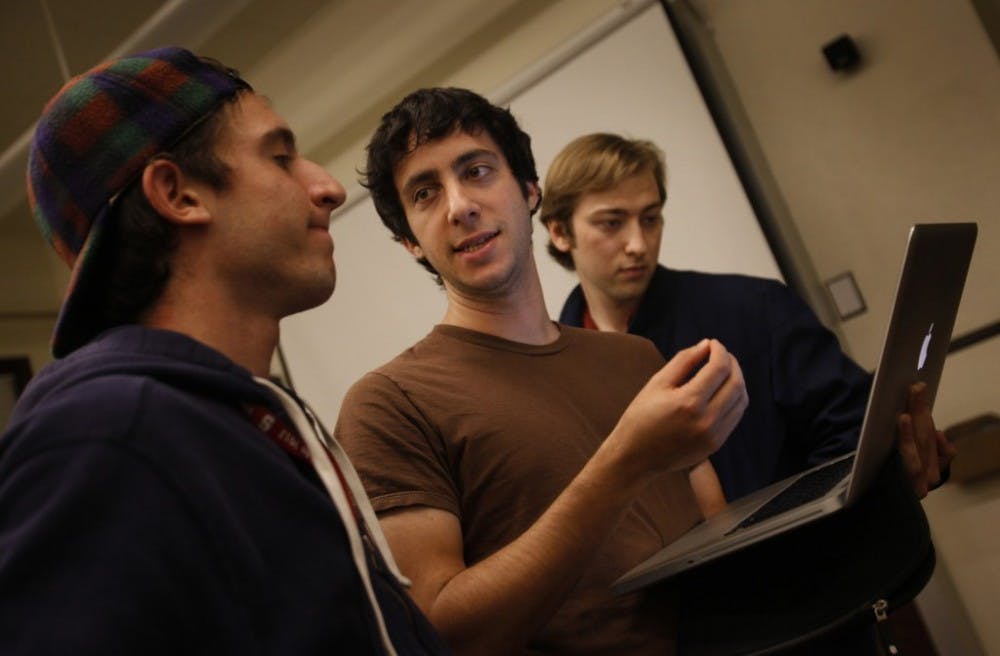For many Elon students, laptops, smartphones and tablets are an essential part of everyday life. But some faculty members debate whether these technologies have a place in the classroom.
“They are an educational tool,” said Peter Felten, director of the Center for the Advancement of Teaching and Learning. “But they can be a barrier to education, too, if students are distracted by what’s happening on their screens.”
Faculty members will meet to discuss the pros and cons of technology in the classroom during a Lunchtime Conversation about Teaching and Learning Oct. 8.
“The goal of the conversation is to help faculty think and reflect on what they’re doing to advance student learning, and how laptops intersect with that,” Felten said.
During the conversation, teachers will be able to discuss the challenge of incorporating technology into their lessons and the technological resources they find useful.
“Our goal is an educational goal,” Felten said. “It is not a persuasive goal to say that laptops are good or bad. That’s too contextual. They are not good or bad. They are tools.”
Though not all classroom situations are suited to the use of technology, there are times when having Internet access can benefit students, according to Christopher Waters, assistant CIO and director of Teaching and Learning Technologies.
“If someone is a visual learner, they might engage differently with an online tool than someone who responds well to just hearing the material,” Waters said.
As new technologies and mobile applications are emerging and gaining popularity around campus, the Teaching and Learning Technologies department is offering assistance to teachers that want to integrate such tools into classrooms.
“We want to support the faculty in whatever tools best fit their course,” Waters said. “As more and more students bring technology into the classroom, we’re trying to make sure we offer solutions, suggestions and solid methods for integrating them into the classroom.”
Junior llana Israel usually brings her iPad to class. She said feels she has benefitted from having this resource available in the classroom.
“In my economics class, it was much easier to follow along with the professor’s slides when I had them in front of me,” she said. “And in classes with a lot of note taking, it can be difficult if you have to handwrite everything.”
But technology can be a hindrance in classes that are largely discussion-based, Israel said.
“There is no reason to use them in a discussion class,” she said. “That’s where they become more of a distraction, because students that use them during discussions are most likely on Facebook or Pinterest.”
Though the need for technology in the classroom is largely situational, Israel said she feels the students have to take responsibility for their use of these resources.
“It shows in a student’s grades what they are using technology for,” Israel said. “If they aren’t using it for the right thing, and they are just messing around on the Internet, it’s to their own disadvantage.”


